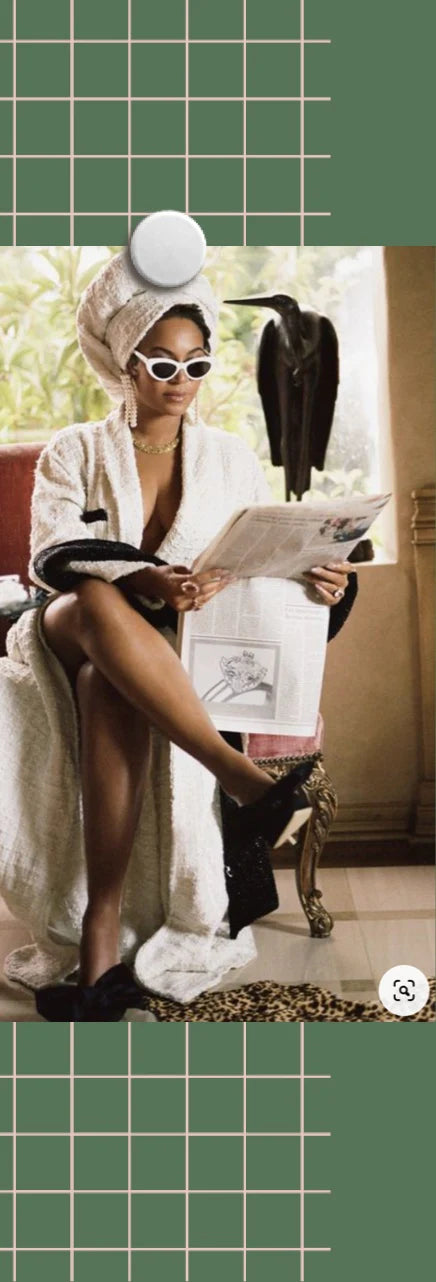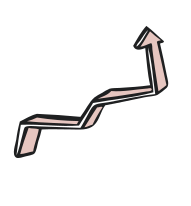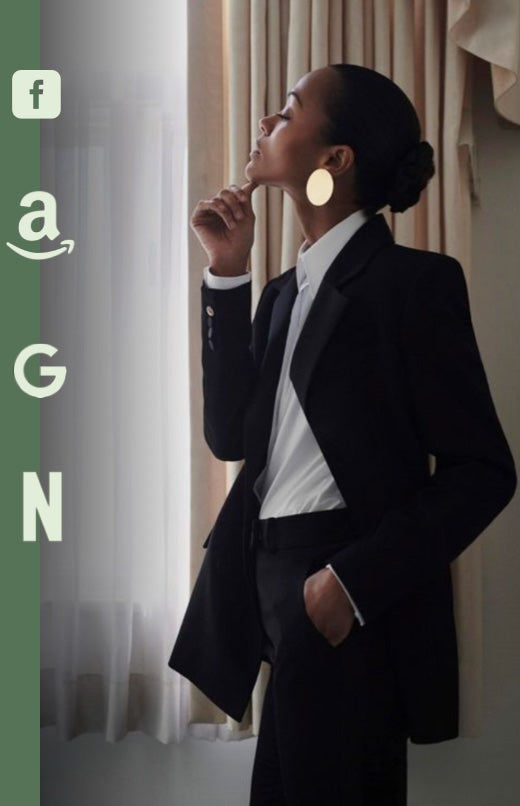







Money talks with Victoria Harris
“Will the Lipstick Effect stick?” asks our resident expert of financial-education platform The Curve.
We’re all feeling it. The cost of everything has gone up and our pay cheques aren’t stretching as far as they used to. It sucks, yet despite money being tight, we still want to look and feel our best. We might not be able to afford as many handbags or holidays as we’d like, but there is one affordable luxury item women globally turn to in order to feel good — lipstick.
During the pandemic, lipstick sales, and the beauty industry in general, didn’t do fantastically well. We were all stuck at home in lockdown, and when we did venture out, it was with masks camouflaging our faces. Fast forward to today and the economic environment is in a different place again. Inflation is super high, mortgage rates have doubled and some countries are already in recession. We’re spending less on luxury items and more on essentials — with the odd exception.
Cue the Lipstick Effect. Also known as the Lipstick Index, it was created by Estée Lauder’s Leonard Lauder (whose parents founded the company in 1946) to describe the way sales of affordable luxuries increase during economic downturns. This spending behaviour has held true during previous periods of hardship and the same picture is emerging today as we battle severe financial headwinds. The theory goes that in tough times, people indulge in purchases that provide an emotional boost without breaking the bank — and lipstick fits the bill. Although the effect may not hold much sway in traditional economic circles, research has shown that sales of lipstick and lip-related products grew almost 50% in the first-quarter of 2022 versus the year before, more than twice as fast as other beauty categories. So who’s benefiting from this reallocation of spending? The beauty industry is estimated to be worth more than US$570 billion worldwide and is made up of a lot of players.
Five of the biggest are:
If investing in these beauties sounds like a bit of you, here’s how. They’re all public companies, so anyone can buy shares in them, using a financial advisor or a platform such as Sharesies. At The Curve, we often talk about investing in what you know. Take me, for example. I don’t contribute meaningfully to those billions spent on beauty products, but I’m genuinely interested in keeping up with the new developments and trends that emerge in the industry. This means I’m ‘researching’ investing ideas without even realising it, so it makes sense to put my money into something I feel an affinity with.
The current economic climate won’t last, and our spending habits will return to normal when it improves, so if you are investing, it’ll pay to keep up with the play. If you switch back to handbags and holidays and ditch the lipstick, it’s likely others will too, meaning you might want to invest elsewhere.
We’re all feeling it. The cost of everything has gone up and our pay cheques aren’t stretching as far as they used to. It sucks, yet despite money being tight, we still want to look and feel our best. We might not be able to afford as many handbags or holidays as we’d like, but there is one affordable luxury item women globally turn to in order to feel good — lipstick.
During the pandemic, lipstick sales, and the beauty industry in general, didn’t do fantastically well. We were all stuck at home in lockdown, and when we did venture out, it was with masks camouflaging our faces. Fast forward to today and the economic environment is in a different place again. Inflation is super high, mortgage rates have doubled and some countries are already in recession. We’re spending less on luxury items and more on essentials — with the odd exception.
Cue the Lipstick Effect. Also known as the Lipstick Index, it was created by Estée Lauder’s Leonard Lauder (whose parents founded the company in 1946) to describe the way sales of affordable luxuries increase during economic downturns. This spending behaviour has held true during previous periods of hardship and the same picture is emerging today as we battle severe financial headwinds. The theory goes that in tough times, people indulge in purchases that provide an emotional boost without breaking the bank — and lipstick fits the bill. Although the effect may not hold much sway in traditional economic circles, research has shown that sales of lipstick and lip-related products grew almost 50% in the first-quarter of 2022 versus the year before, more than twice as fast as other beauty categories. So who’s benefiting from this reallocation of spending? The beauty industry is estimated to be worth more than US$570 billion worldwide and is made up of a lot of players.
Five of the biggest are:
1 / ESTÉE LAUDER
As well as its eponymous brand, this US behemoth owns many of the world’s most famous cosmetics and fragrance names, among them Bobbi Brown, Clinique, Jo Malone London, La Mer, MAC and Tom Ford Beauty.
2 / L’ORÉAL
3 / COTY
Bearing the surname of its French founder, who began the company in 1904, this French-US fragrance, haircare and cosmetics conglomerate is home to loads of brands, like Kylie Cosmetics, Max Factor and Rimmel.4 / SHISEIDO
Created in Japan in 1972, this company is behind superstars old and new, including Nars, Tory Burch and Drunk Elephant.5 / LVMH
Otherwise known as Moët Hennessy Louis Vuitton, 36-year-old LVMH’s list of beauty brands features cult favourites such as Benefit Cosmetics, and icons like Christian Dior, Fenty Beauty, Givenchy and Guerlain.If investing in these beauties sounds like a bit of you, here’s how. They’re all public companies, so anyone can buy shares in them, using a financial advisor or a platform such as Sharesies. At The Curve, we often talk about investing in what you know. Take me, for example. I don’t contribute meaningfully to those billions spent on beauty products, but I’m genuinely interested in keeping up with the new developments and trends that emerge in the industry. This means I’m ‘researching’ investing ideas without even realising it, so it makes sense to put my money into something I feel an affinity with.
The current economic climate won’t last, and our spending habits will return to normal when it improves, so if you are investing, it’ll pay to keep up with the play. If you switch back to handbags and holidays and ditch the lipstick, it’s likely others will too, meaning you might want to invest elsewhere.


